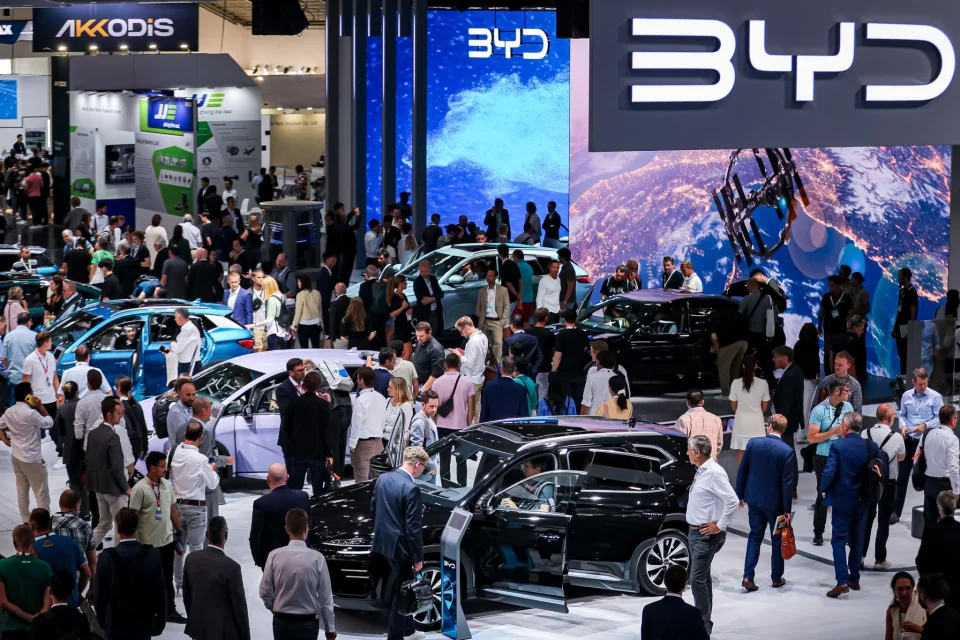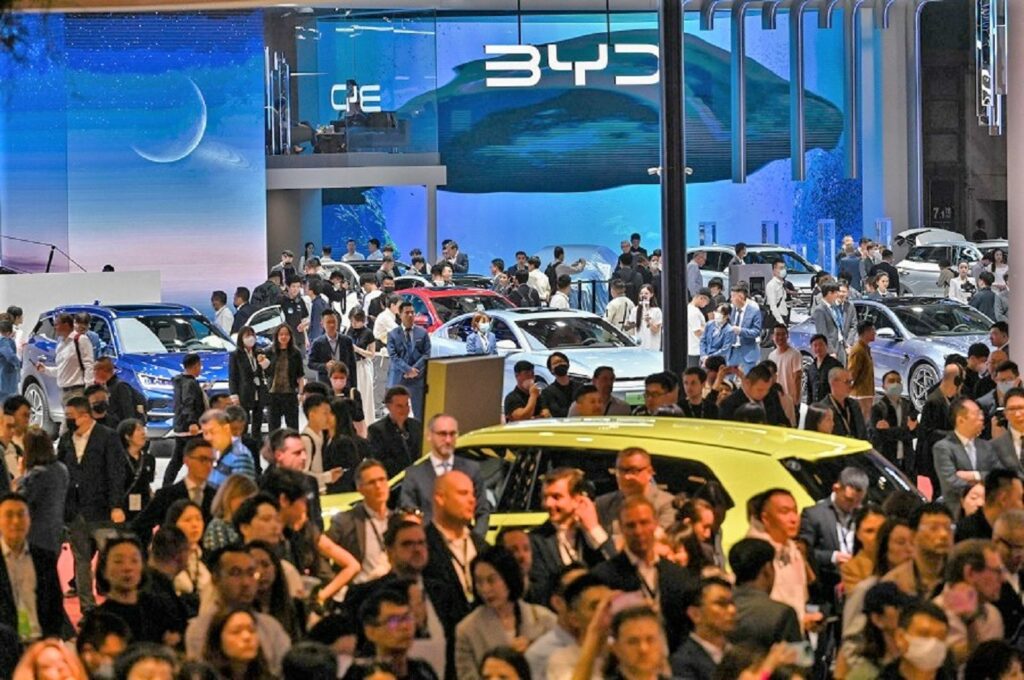
electric vehicle electric vehicle (EV) manufacturer BYD has sent ripples through the global automotive industry by overtaking Tesla as the leader in EV sales. While this achievement may not have surprised casual industry observers, what has truly left carmakers worldwide astounded is BYD’s exceptional ability to offer unbeatably low prices. Backed by Warren Buffett’s Berkshire Hathaway, BYD has disrupted traditional perceptions of EV affordability and set the industry abuzz.
When China’s BYD surpassed Tesla as the global leader in electric vehicle (EV) sales, the automotive industry was taken aback. However, what has truly shocked carmakers worldwide is BYD’s exceptional ability to offer low prices in comparison to its competitors.
Michael Dunne, CEO of Dunne Insights, an Asia-focused car consultancy, emphasized that nobody can compete with BYD when it comes to pricing. This revelation has left boardrooms in America, Europe, Korea, and Japan in a state of surprise.
BYD’s ability to maintain competitive pricing is attributed, in part, to its ownership of the entire supply chain for EV batteries. The company manages the entire process, from sourcing raw materials to producing the finished battery packs. Given that approximately 40% of the cost of a new electric vehicle is associated with the battery, BYD’s control over this crucial aspect allows for cost savings.
While BYD’s presence on American roads is not yet widespread, experts believe it’s only a matter of time, despite current high tariffs. Presently, EVs manufactured in China face a 25% tariff in the U.S., in addition to a 2.5% tariff on imported cars.
According to Michael Dunne, CEO of Dunne Insights, BYD stands unparalleled when it comes to pricing. Boardrooms in America, Europe, Korea, and Japan are reportedly “in a state of shock” over BYD’s pricing strategy. The company’s capability to keep costs low is attributed to its control over the entire supply chain of EV batteries, covering raw material sourcing to battery pack production. With the battery accounting for a substantial 40% of a new EV’s price, BYD’s holistic approach allows for significant cost savings.
Even with these tariffs, BYD’s competitive pricing strategy positions it favorably. Michael Dunne notes that if BYD or other Chinese automakers introduce a $20,000 car, they would still be in a strong position, considering the average price of a new car in the U.S. is around $48,000.
BYD made a significant impact in China with the launch of the Seagull EV, priced at approximately $11,000, becoming one of the best-selling EVs in the country. Now, the company aims to disrupt overseas markets, including Europe, South America, and Southeast Asia, by exporting more affordable models.
BYD’s Dolphin hatchback is priced at $33,000 in Britain, nearly 30% below the starting price of Volkswagen’s ID.3 hatchback. However, the company plans to export even more budget-friendly models to global markets.
In anticipation of expanding its reach, BYD is exploring the possibility of establishing a new manufacturing plant in Mexico. With a free trade agreement in place, Mexico provides a potential gateway for Chinese automakers to enter the U.S. market. However, concerns have been raised by House lawmakers about Chinese giants like BYD gaining indirect access to the U.S. market through Mexico.
At the helm of BYD is its founder and CEO, Wang Chuanfu, known for his relentless cost-cutting and engineering prowess. Wang’s ability to swiftly assess and manufacture components has earned praise from industry experts, with Charlie Munger, Warren Buffett’s long-time partner, stating that “the guy at BYD is better at actually making things than Elon is.”
BYD’s founder and CEO, Wang Chuanfu, plays a crucial role in the company’s success. Known for his cost-cutting expertise, Wang’s ability to swiftly assess and manufacture components has earned admiration. Charlie Munger, Warren Buffett’s long-time partner, highlighted Wang’s engineering and production talents, stating that “the guy at BYD is better at actually making things than Elon is.”
Conclusion
BYD’s remarkable ascent to the top of the global EV market, coupled with its disruptive pricing strategy, has shaken the automotive industry to its core. As the world looks toward a future dominated by electric mobility, BYD’s ability to redefine affordability may shape the industry’s landscape in unforeseen ways. Whether it’s disrupting markets in China or making waves in the West, BYD has become a force to be reckoned with in the race for electric supremacy.

